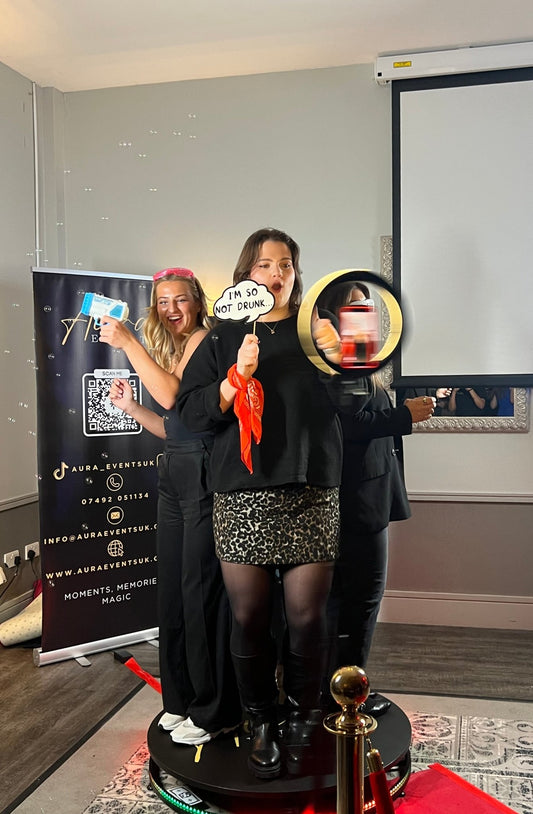Corporate Event Planning UK has become a vital component in the events industry, helping businesses, private clients, and agencies create memorable experiences that drive brand success. In today’s competitive market, corporate event planners rely on data, advanced technology, and best practices to design and execute events ranging from conferences and product launches to team-building activities and gala dinners. This article provides a comprehensive, fact-based guide to corporate event planning in the UK, discussing market trends, essential components, technology integration, and future directions. Drawing on data from Statista, IBISWorld, and academic insights from institutions like Birmingham City University, this guide is designed for corporate event organisers, planners, and management teams looking to improve their event production and delivery.
1. Introduction
Corporate events play a significant role in promoting brands, fostering team spirit, and driving business growth. In the UK, corporate event planning covers a wide range of activities—from corporate conferences and brand activations to virtual events and hybrid formats that combine live and online elements. Companies across the world are investing in high-quality event management services to create unique experiences that resonate with their audiences.
According to Statista (2023), the UK events industry is valued at over £10 billion, with corporate events forming a substantial part of that value. IBISWorld (2022) reports an annual growth rate of 3–5% in the corporate event management sector. This growth is driven by increasing business spending on events, rising consumer expectations for immersive experiences, and technological advancements that streamline planning and production. These trends emphasize the importance of a data-driven approach in corporate event planning.
In this article, we explore the core components of successful corporate event planning in the UK, including detailed planning processes, venue selection, event logistics, production quality, marketing strategies, and the integration of cutting-edge technology.
2. Understanding Corporate Event Planning UK
Corporate event planning in the UK is a multi-faceted discipline that involves the design, coordination, and execution of events aimed at achieving specific business objectives. Whether the goal is to launch a new product, celebrate company milestones, or build stronger team relationships, effective corporate event planning aligns every element of the event with the overall business strategy.
2.1 What Constitutes Corporate Event Planning?
Corporate event planning involves:
- Event Management: Coordinating every aspect of an event—from initial concept and budgeting to execution and post-event analysis.
- Venue Selection: Identifying and securing a suitable location is critical. Factors such as accessibility, capacity, and technical infrastructure play a significant role.
- Logistics and Production: Organising technical production, including lighting, sound, staging, and entertainment, ensures that the event runs smoothly.
- Marketing and Communication: Effective promotion, including digital marketing and personalised communications, drives attendance and engagement.
- Team Coordination: A dedicated team, including event planners, technical experts, creative designers, and vendor managers, works together to deliver a seamless event.
- Integration of Technology: Tools such as event management software, virtual event platforms, and data analytics are increasingly used to optimise planning and delivery.
Corporate events vary widely, from large-scale conferences and award ceremonies to smaller team-building activities and private brand activations. This diversity requires a full-service approach that adapts to the unique needs of each event.
3. Market Data and Trends
Data plays a critical role in shaping the strategies of corporate event planning. Current trends and market statistics provide event organisers with the insights needed to make informed decisions and deliver exceptional experiences.
3.1 Key Market Figures
- Market Value: Statista (2023) estimates that the UK events industry is valued at over £10 billion, with corporate events representing a major segment.
- Growth Rates: IBISWorld (2022) reports a steady annual growth rate of 3–5% in corporate event management, reflecting increased business spending on events.
- Budget Priorities: Surveys indicate that nearly 70% of corporate clients prioritize venue design, logistics, and production quality when selecting an event management company.
- Sustainability Impact: Research by the UK Green Events Council (2023) shows that sustainable event practices can increase client satisfaction by up to 20%.
3.2 Emerging Trends in Corporate Event Planning
- Hybrid and Virtual Events: The rise of virtual events and hybrid models is a major trend. Event planners report that 65% now use event management software to support virtual participation, which has become critical in reaching international students and remote teams.
- Data-Driven Decisions: Corporate event planners increasingly rely on real-time analytics and data to make informed decisions during the planning process. This helps improve event logistics and attendee engagement.
- Technological Integration: Tools such as augmented reality (AR), virtual reality (VR), and artificial intelligence (AI) are enhancing the overall event experience. These technologies allow for immersive brand activations and interactive sessions.
- Personalisation: Tailoring event experiences to meet the specific needs of clients and attendees is key. Personalised marketing and communication strategies can boost engagement by around 25%.
- Sustainable Practices: There is a growing demand for eco-friendly event solutions. Choosing venues with green credentials and adopting sustainable practices is increasingly important for brand image and client satisfaction.
These data points and trends highlight the evolving nature of corporate event planning in the UK and the need for a modern, flexible approach.
4. Core Components of Corporate Event Planning UK
Successful corporate event planning is built on several essential components. Each step—from planning and budgeting to execution and post-event evaluation—contributes to the overall success of the event.
4.1 Comprehensive Planning Process
A detailed planning process is the backbone of every successful corporate event.
-
Objective Setting:
Define clear, measurable goals for the event. Whether the objective is to launch a product, boost brand activation, or foster team-building, setting clear objectives guides every decision in the planning process. -
Budgeting and Financial Planning:
Research shows that approximately 70% of event challenges stem from inadequate budgeting. A realistic budget should cover venue hire, technical production, marketing, and contingency funds. Using data-driven budgeting tools helps forecast costs and manage expenses effectively. -
Timeline Management:
Creating a detailed timeline with specific milestones is critical. This includes deadlines for venue booking, vendor confirmations, marketing launches, and final production reviews. Project management software is increasingly used by corporate event planners to ensure that all deadlines are met. -
Vendor Coordination:
Successful corporate events require the coordination of multiple vendors, including catering, technical production, lighting, and entertainment providers. Building strong relationships with reliable vendors ensures that every aspect of the event is executed flawlessly.
4.2 Venue Selection and Logistics
The selection of a venue significantly influences the success of a corporate event.
-
Location and Accessibility:
Venues located in central or easily accessible areas are preferred by many corporate event organisers. Studies show that the right venue can improve attendee satisfaction by up to 30%. -
Technical Infrastructure:
Modern corporate events require venues that offer high-quality audio-visual systems, high-speed internet, and flexible spaces that can accommodate both large presentations and smaller breakout sessions. This is especially important for hybrid events that combine live and virtual elements. -
Aesthetic and Design:
The design and ambience of the venue play a crucial role in the event experience. Creative design elements and innovative staging can enhance brand presence and leave a memorable impression on attendees. -
Logistics and Operations:
Efficient logistics include transportation, on-site coordination, and technical support. Detailed planning of these elements minimizes disruptions and ensures a smooth event flow.
4.3 Event Production and Technical Management
Production quality is a key differentiator in corporate events.
-
Technical Production:
Professional production services, including lighting, sound, and stage design, are essential. Data from industry reports indicates that events with high production quality receive up to 50% more positive feedback from attendees. -
Vendor and Team Coordination:
A dedicated team of corporate event planners, technical experts, and creative designers must work closely together. Seamless collaboration among team members and vendors is necessary for managing live events, hybrid events, and virtual events effectively. -
Real-Time Adjustments:
Modern event management software allows for real-time monitoring and adjustments during the event. This capability ensures that any technical issues or logistical challenges are addressed immediately, minimizing disruption to the attendee experience.
4.4 Marketing and Communication
Effective marketing strategies are crucial for attracting attendees and ensuring engagement.
-
Digital Marketing:
Over 80% of corporate event organisers now use digital channels such as social media, email campaigns, and dedicated event websites to promote their events. Digital marketing also enables targeted communication to potential attendees. -
Personalised Communication:
Tailoring invitations and updates to the specific needs and interests of corporate clients increases engagement. Research suggests that personalised communication can boost attendance and interaction by approximately 25%. -
Post-Event Follow-Up:
Maintaining communication with attendees after the event, such as through feedback surveys, photo galleries, and thank-you emails, helps build long-term relationships and provides valuable insights for future events.
5. Leveraging Technology in Corporate Event Planning
Technology plays an increasingly central role in corporate event planning. The integration of advanced tools not only streamlines the planning process but also enhances the overall event experience.
5.1 Event Management Software
Event management software has become indispensable for modern corporate event planners.
-
Automated Registration and Ticketing:
These software solutions simplify guest registration, ticketing, and check-ins. Automation reduces administrative errors and ensures accurate data collection. -
Real-Time Analytics:
Real-time data on attendee behavior, engagement, and technical performance enables planners to make informed decisions on the fly. A survey by EventMB (2022) found that 65% of event planners use real-time analytics to optimize event outcomes. -
Integrated Communication Platforms:
Event management software provides integrated tools for communication between the planning team, vendors, and clients. This integration ensures that all parties are updated in real time, reducing miscommunication and delays.
5.2 Virtual and Hybrid Event Platforms
The demand for hybrid and virtual events continues to rise.
-
Live Streaming and On-Demand Content:
Virtual platforms enable live streaming of events, allowing remote participants to engage in real time. This is especially important for corporate events that target international students and remote teams. -
Interactive Engagement Tools:
Features such as live polls, Q&A sessions, and chat rooms create an interactive experience for virtual attendees, ensuring that they remain as engaged as those present at the physical venue. -
Extended Reach and Accessibility:
Hybrid event models combine live and virtual components, increasing accessibility and expanding the potential audience. These models also provide detailed analytics on virtual participation, which can be used to refine future event strategies.
5.3 Data Analytics and Research Tools
Data analytics is at the heart of modern corporate event planning.
-
Performance Metrics:
Tracking key performance indicators (KPIs) such as attendance rates, engagement levels, and overall production quality provides valuable feedback. This data helps corporate event organisers evaluate the success of each event. -
Audience Insights:
Surveys, social media analysis, and post-event feedback form the basis for understanding what works and what needs improvement. These insights allow planners to tailor future events more closely to the needs of their target audience. -
Predictive Analytics:
Advanced analytics tools, powered by machine learning and AI, forecast trends such as attendance and engagement levels. Research from Birmingham City University suggests that AI-driven analytics can increase planning efficiency by up to 35%.
5.4 Emerging Technologies
The integration of emerging technologies continues to transform corporate event planning.
-
Augmented Reality (AR) and Virtual Reality (VR):
AR and VR are being used to create immersive experiences, such as virtual venue tours and interactive design previews. These technologies help clients visualise event setups before they are executed. -
Artificial Intelligence (AI):
AI applications in corporate event planning include vendor recommendations, personalised marketing, and real-time problem solving during events. AI tools streamline operations and improve the overall production quality of corporate events.
6. Best Practices for Corporate Event Planning UK
Drawing on industry research and data-driven insights, the following best practices can help corporate event organisers deliver exceptional events.
6.1 Comprehensive Research and Planning
-
Market and Audience Analysis:
Use data from sources like Statista and IBISWorld to understand current trends and market conditions. In addition, gather audience insights through surveys and social media analytics to tailor the event experience. -
Competitive Benchmarking:
Study successful corporate event organisers such as MGN Events and ATM Events to learn best practices in venue selection, event production, and overall management. -
Clear Objective Setting:
Define measurable goals for every event. Objectives might include increasing brand awareness, launching a new product, or improving team cohesion.
6.2 Building a Skilled Team and Strong Vendor Relationships
-
Team Expertise:
Assemble a team of experienced corporate event planners, creative designers, technical experts, and vendor managers. Regular training and development—often provided by industry courses and modules from institutions like Birmingham City University—ensure the team remains up-to-date on the latest trends and technologies. -
Vendor Partnerships:
Build long-term relationships with reliable vendors for lighting, sound, catering, and entertainment. Consistent vendor quality is crucial for smooth event execution.
6.3 Leveraging Technology and Data
-
Adopt Advanced Tools:
Use event management software and real-time analytics to streamline planning, monitor performance, and make necessary adjustments during the event. -
Hybrid Event Integration:
Incorporate virtual and hybrid elements to broaden audience reach. Hybrid events have become a core component of modern corporate event planning and provide valuable engagement data. -
Continuous Improvement:
Analyze post-event data and audience feedback to refine strategies for future events. A commitment to data-driven improvements can lead to higher client satisfaction and more memorable events.
6.4 Sustainability and Innovation
-
Eco-Friendly Practices:
Choose venues with strong sustainability credentials and adopt environmentally friendly practices, such as digital ticketing and waste reduction measures. According to the UK Green Events Council (2023), sustainable practices can boost client satisfaction by up to 20%. -
Creative Production:
Use innovative design and emerging technologies like AR and VR to create immersive event experiences. Creativity in production can differentiate your event and leave a lasting impression on attendees. -
Transparent Communication:
Maintain open communication channels with clients throughout the planning process. Regular updates and clear communication build trust and ensure that event objectives are met.
7. Future Trends in Corporate Event Planning UK
The future of corporate event planning in the UK will continue to evolve with advancements in technology and changing audience expectations. Some key trends include:
7.1 Greater Integration of AI and Predictive Analytics
As artificial intelligence and machine learning technologies advance, their integration into corporate event planning will increase. AI tools will help predict attendance trends, personalise marketing efforts, and optimise event logistics in real time.
7.2 Expansion of Hybrid and Virtual Event Models
Hybrid events, which combine live and virtual components, are expected to grow. These models not only expand audience reach but also provide detailed analytics that can be used to improve future event strategies. The popularity of virtual events is likely to continue as businesses seek flexible ways to engage both local and international attendees.
7.3 Increased Emphasis on Sustainability
Sustainability will remain a major focus in the events industry. As more clients demand eco-friendly practices, corporate event planners will need to integrate sustainable solutions in every aspect—from venue selection to technical production. Innovations in sustainable event management will become a standard expectation.
7.4 Enhanced Focus on Personalisation
Personalised experiences are becoming increasingly important in corporate event planning. Using data analytics and audience insights, event organisers will tailor every aspect of the event—from marketing messages to event design—to meet the specific needs and preferences of attendees.
7.5 Ongoing Adoption of Emerging Technologies
Technologies such as AR, VR, and AI will continue to shape the corporate events landscape. These tools provide innovative ways to enhance engagement, improve planning processes, and deliver exceptional event experiences that stand out in a competitive market.
8. Conclusion
Corporate Event Planning UK is a dynamic and growing field that plays a crucial role in building brand value, enhancing team collaboration, and driving business success. By adopting a data-driven approach, leveraging advanced technology, and following best practices, corporate event planners can deliver events that exceed client expectations.
Key components for success include:
- A Detailed Planning Process: Establish clear objectives, manage budgets, and coordinate timelines and vendor relationships.
- Effective Venue Selection and Logistics: Choose accessible venues with modern facilities and creative design to enhance the event experience.
- High-Quality Production and Technical Management: Invest in professional production services and real-time analytics to ensure smooth execution.
- Robust Marketing and Communication Strategies: Utilize digital channels and personalised messaging to engage attendees before, during, and after the event.
- Technology Integration: Use event management software, hybrid event platforms, and emerging technologies such as AR and AI to streamline processes and enhance experiences.
- Commitment to Sustainability and Continuous Improvement: Embrace eco-friendly practices and use data feedback to refine strategies for future events.
As the UK events industry continues to grow—with a market value exceeding £10 billion—and corporate spending on events increases, the importance of effective corporate event planning cannot be overstated. Organizations that invest in full-service event management, from initial planning to post-event analysis, are better positioned to create memorable experiences that drive long-term business growth and client loyalty.
By staying informed through reliable sources like Statista (2023), IBISWorld (2022), and academic research from Birmingham City University, corporate event organisers can adapt to new trends and technological advancements. The future of Corporate Event Planning UK is bright, with opportunities for innovation and continuous improvement paving the way for increasingly successful and engaging events.
In conclusion, whether you are planning a corporate conference, product launch, team-building event, or brand activation, a strategic, data-driven approach to corporate event planning will help you deliver exceptional experiences. Embrace the evolving landscape, invest in modern technologies, and build a collaborative team to ensure your next corporate event is both impactful and memorable.


